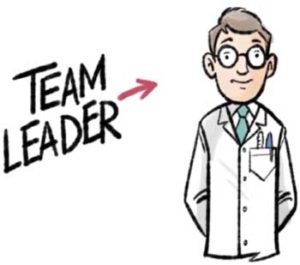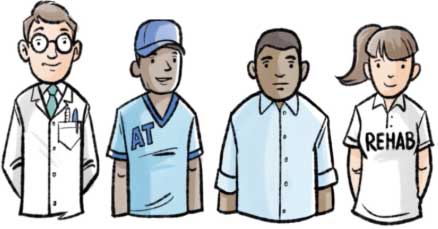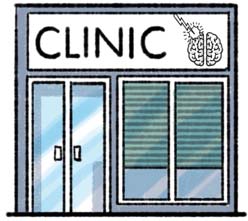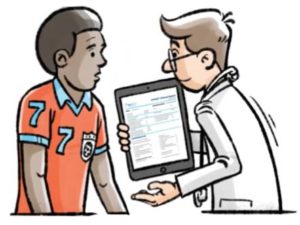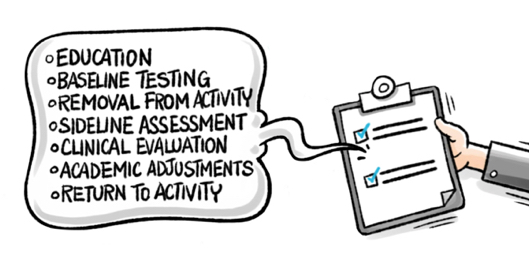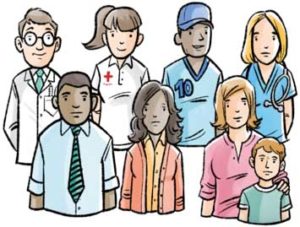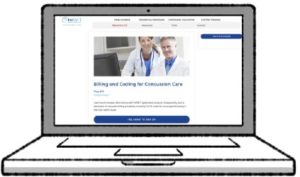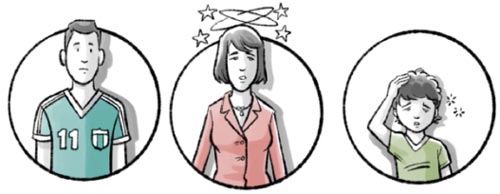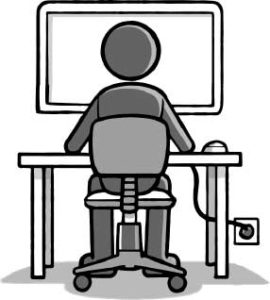CONCUSSION CARE 101 GUIDE
For healthcare professionals who want to set up a concussion care medical practice.
HOW TO START A MEDICAL PRACTICE THAT SPECIALIZES IN CONCUSSIONS?
- Find a concussion specialist to become your practice team leader.
- Include other disciplines in your team: athletic trainer, physical and occupational therapists, and other rehabilitation professionals.
- Define what tools your practice will need: removal from activity screening tools, neurocognitive testing, vestibular/ocular screening, balance screening, etc.
- Decide what kinds of head injury you want to specialize in.
- Establish a clinical workflow that makes sense for your practice.
- Train your entire team to provide best-in-class service.
- Promote your practice through community baseline testing, an extensive referral network, community educational resources, and digital marketing.
- Recommend everyone in your community take a baseline test, so your patients can get a tailored treatment if they ever get a concussion.
1. CONCUSSION CLINIC TOOLS AND
TEAM MEMBERS

WHAT'S THE FIRST STEP IN SETTING UP MY CONCUSSION CARE MEDICAL PRACTICE?
Concussions are a common injury that requires a complex treatment.
Because so many disciplines are involved in treating concussions (athletic trainers, clinicians, physical therapists, nurses, occupational therapists, etc.), the very first step is to determine who will be the concussion care team leader.
It is important to designate one person who can conduct initial assessments, coordinate referrals, and make return to activity decisions.
Ideally, this person would be a Credentialed ImPACT Consultant (CIC) – a qualified healthcare provider who has been specially trained in the management of a concussion. This point person should be licensed to make return to play / return to activity decisions in the area in which you practice and should have good knowledge of a concussion. (Learn more about the CICs role in concussion care.)
WHICH DISCIPLINES SHOULD BE INCLUDED IN MY CONCUSSION CARE TEAM?
Concussions are a traumatic brain injury (TBI) that need a multi-disciplinary team working together to improve patients’ recovery processes. When you’re creating your concussion medical practice, it’s important to keep in mind the scopes of practice each professional covers to make sure there are no gaps in your team:
- Point Person: a qualified healthcare provider who serves as the point person on the concussion care team and makes return to activity decisions;
- Athletic Trainer: recognizes signs and symptoms of concussion at the point of injury and serves as the liaison between family members, school, and practice. Learn more about their role in concussion management;
- Physical Therapist: works in vestibular therapy, active rehabilitation, or target specific deficits identified by the point person. Learn more about their role in concussion management;
- Physiotherapists (outside the US): involved in concussion assessment, concussion treatment, and concussion rehabilitation. Their scope of practice depends on country laws;
- Occupational Therapist / Optometrist: helps with activities of daily living and vision therapy;
- Chiropractor: triages patients to rule out complicating factors and determines if there is an involvement of the cervical spine. Learn more about the chiropractor’s role in concussion care in this comprehensive e-guide;
- School Nurse: helps students return to school safely and avoid activities they shouldn’t engage in. This person also pays attention to the appropriate academic workload;
- Speech Language Pathologists, School Psychologists, other multi-disciplinary team members: may participate in return to school, anxiety/mood issues while recovering from a concussion, or other areas as needed.
WHAT TOOLS DO I NEED IN MY CONCUSSION CARE MEDICAL PRACTICE?
Concussion care and recovery require a multi-faceted approach. Here are some of the tools you need to help your concussion medical practice succeed:
- Removal from Activity Screening Tools: Healthcare providers should use objective tools as well as a comprehensive exam to screen for concussions. ImPACT Quick Test is a screening tool that helps with removal from activity decisions and can be administered on an iPad immediately following a suspected injury at the competition site, workplace, or point of care.
- Computerized Neurocognitive Testing: Neurocognitive testing offers an objective measure to track neurocognitive functioning. ImPACT and ImPACT Pediatric are cognitive tests that help healthcare providers assess concussions and make important care decisions.
- Vestibular/Ocular Screening: Approximately 50% of post-concussion patients report vestibular symptoms. Vestibular Ocular Motor Screening Exam (VOMS) is a free, simple assessment that may help dictate treatment plans. The VOMS is included with ImPACT Quick Test.
- Balance Screening: Balance can be an important measure of post-concussion status, especially shortly after an injury. The Balance Error Scoring System (BESS) is a straightforward test that requires only a stopwatch, a balance pad, and an assistant to act as a spotter. The BESS is included with ImPACT Quick Test.
WHAT ARE THE GUIDELINES TO KEEP IN MIND WHEN SETTING UP MY CONCUSSION CARE MEDICAL PRACTICE?
- There is no “one-size-fits-all” concussion clinic model: every program is different. Set up your practice in such a way that works for your patients and clinical workflow.
- Concussion care is constantly developing. Make sure you and your medical professionals follow best practices and keep up on current research.
- There is no “one stop shop” for concussion care. Look for tools to evaluate and measure brain function so you can have an objective picture of each traumatic brain injury you examine.
- Most importantly, your concussion care medical practice should be a reflection of your passion. Strive to improve patient outcomes and reduce long term negative effects of a concussion.
- A reliable treatment plan for a concussion requires interdisciplinary care. Partner with primary care, physical therapy, and sports medicine professionals to make sure you offer well-rounded concussion care.
2. DETERMINING PRACTICE SETUP AND FLOW
WHAT TYPES OF PATIENTS WILL MY CONCUSSION CARE MEDICAL PRACTICE SEE?
The types of patients you see will likely be determined by your geographic location. If you’re the only concussion care medical practice in your area, you can set yourself up to be the go-to provider for treating concussions.
If there are other practices in your area, you may consider specializing or offering a service your competitors don’t. You play a role within your community - find out what that role is!
When deciding who your ideal patients are, it’s important to keep in mind the kinds of head injury you want to specialize in.
Do you want to be known for sports concussion rehabilitation?
Are you specializing in treatment of post-concussion syndrome?
Do you want to be a jack of all trades?
Do you want to do concussion diagnosis and treatment mainly for pediatric patients?
Are you specializing in tailored return to work treatment for worker's comp cases?
After you define your niche, you should create a strong mission statement to communicate your standard of care.
A good mission statement might be:
“Our practice strives to provide best in class concussion care for patients of all walks of life. Our mission is to improve patient outcomes following concussion by using best practices and current evidence.”
By sticking to your unique mission, your concussion care medical practice will be able to leverage the best available resources and research to help head trauma patients get better.
HOW DO I DEVELOP MY CONCUSSION CARE MEDICAL PRACTICE WORKFLOW?
After putting your concussion care team together and agreeing on your business goals, decide what parts of the concussion care process you want to handle. Steps include:
- Concussion education: Provide education to students, parents, school staff, and general public on concussion basics, risk factors, diagnosis, and treatment. These resources can help get you started.
- Baseline concussion testing: Promote baseline testing as a critical piece of concussion care. Baseline testing ensures that, in the event of a head injury, you have a clinical report to determine the patient’s “normal” neurocognitive functioning.
- Point of injury evaluation: Become a go-to decision maker when it comes to removal from activity decisions. Get a tool to help you with screening athletes and patients.
- Acute injury management: Be the centerpiece of concussion treatment. Have the tools, knowledge, and skills to help with concussion diagnosis. Know the first steps after a concussion is diagnosed.
- Complicated concussion management: Have a referral network and tools to manage individualized, complicated concussions. 20% of concussion patients take longer than 3 weeks to recover from their TBI.
- Return to activity clearance: Be familiar with the laws in your area and regulations surrounding return to play activity. In addition to return to play, have a process in place for how you'll manage return to learn and return to everyday activity such as driving, exercising, and recreational activities.
3. SET YOUR PRACTICE UP FOR SUCCESS
HOW DO I TRAIN MY CONCUSSION CARE TEAM?
Communication with all the members of your concussion care team is crucial to the success of your patients’ recovery. To get your team on the same page, get training in the following areas of practice:
- Point Person: training on concussion assessment and treatment decisions;
- Athletic trainer: training on removal from activity, academic adjustments, and return to activity;
- Physical therapist: training on concussion rehabilitation;
- Physiotherapist: training on concussion rehabilitation and assessment (depending on location);
- Occupational Therapist: training on functional activities and vision therapy;
- Billing Staff: Proper billing and coding procedures for concussion care services;
- School Nurse / School Staff: ImPACT onboarding training including administration instructions and a Customer Center walkthrough;
- SLPs, Kinesiologists, other team members: training as needed to support concussion care team
Concussions are best treated by a multi-disciplinary team working within their scopes of practice to improve outcomes and reduce patients’ recovery time. With the right training, team, and tools, you’ll be in the perfect position to provide best in class concussion care in your community.
HOW DO I BILL FOR CONCUSSION CARE SERVICES?
Depending on your practice’s setting and location, billing for concussion care services may vary. Learn about eligible CPT codes using the resources below to get reimbursed for using ImPACT, ImPACT Pediatric, or ImPACT Quick Test as part of your concussion evaluation.
- Billing Guide
- Billing and Coding for Concussion Care Course
- Billing and Coding for Concussion Rehabilitation Course
HOW DO I PROMOTE MY CONCUSSION CARE MEDICAL PRACTICE?
As a new practice, you’ll need to introduce your products and services to the community and build your practice as a go-to provider for concussion care. To supercharge your marketing, here are a few tips and resources:
- Organize community baseline concussion testing: This is a fantastic way to show goodwill in your community, as well as educate students, parents, and school staff on concussions. You’ll also build relationships and in case of a suspected concussion, you'll be the top of mind person.
- Build a referral network: Connect with providers in your area who offer services your clinic doesn’t, and make them aware of the services you provide. Improving patient outcomes is at the core of great concussion care - recognize your strengths and weaknesses and fill in the gaps as needed.
- Create resources that educate your community: ImPACT Applications has a variety of resources available for you to use. Existing ImPACT Applications customers can also contact us to customize carefully selected community outreach materials with your clinic’s logo.
- Inform parents and students: Share this Concussion 101 Guide with parents and students.
- Invest in a digital marketing strategy: Understand who your target audience is. Make sure your clinic is active on social media and easily found on search engines, like Google and Bing. You can hire a full service online marketing agency to help you with your marketing efforts if you don’t have the time and skills.
- Excel in customer service: Have the best human resources possible to make sure your patients are being treated fairly both online and offline.
- Get one of your physicians trained as a Credentialed ImPACT Consultant to be your point person: Besides receiving best in class concussion training, CICs receive a featured listing on ConcussionCareProviders.com, showcasing your clinic as a go-to provider for concussion care.
- Add ImPACT Trained Healthcare Providers to your team: ImPACT Trained Physical and Occupational Therapists receive a listing as rehab professionals on ConcussionCareProviders.com. ImPACT Trained Athletic Trainers have an additional listing, highlighting your team as trained in concussion care.
Concussion is a complicated injury that requires proven and effective concussion medical practices, protocols, teams, and tools. With the right resources, you can make a lasting impact in your community and become known for providing best in class concussion care. Use this checklist to jumpstart your marketing efforts.
HOW DO I MAKE SURE MY PATIENTS HAVE A BASELINE TEST BEFORE THEIR VISIT?
The best comparison of a patient’s cognitive status after a concussion is to their own baseline. Educate your community and recommend they take a baseline test at home at BaselineTesting.com. It’s another way of making sure you’re providing the best concussion care possible.

